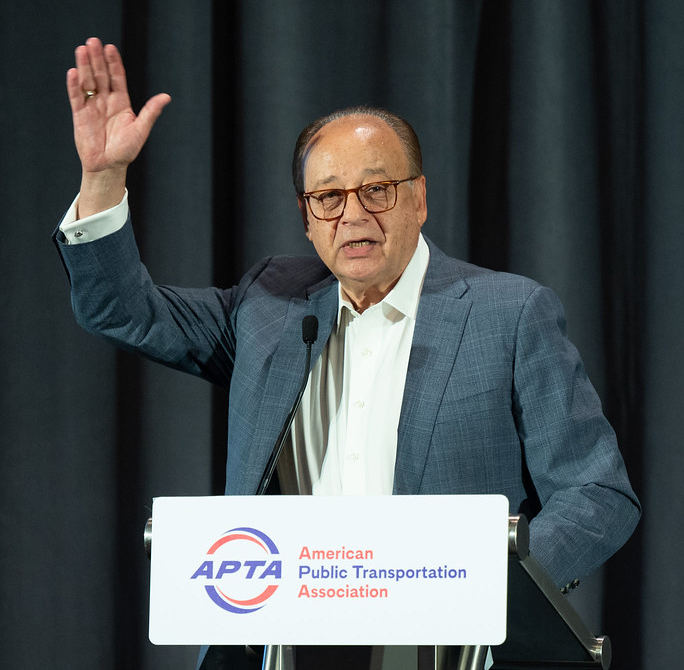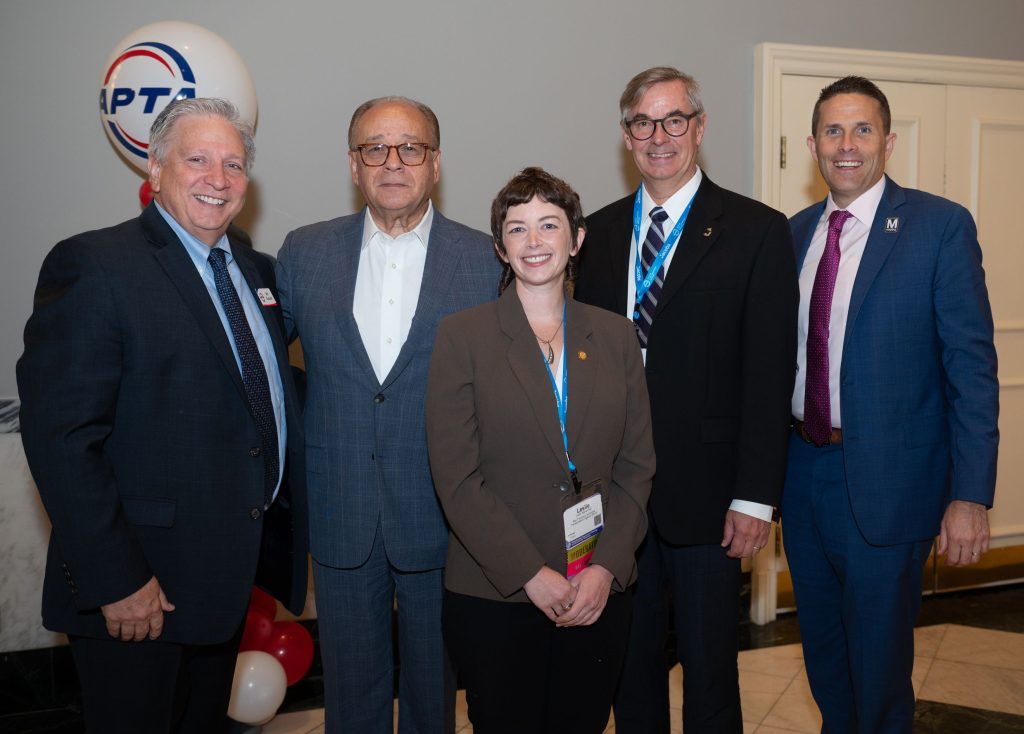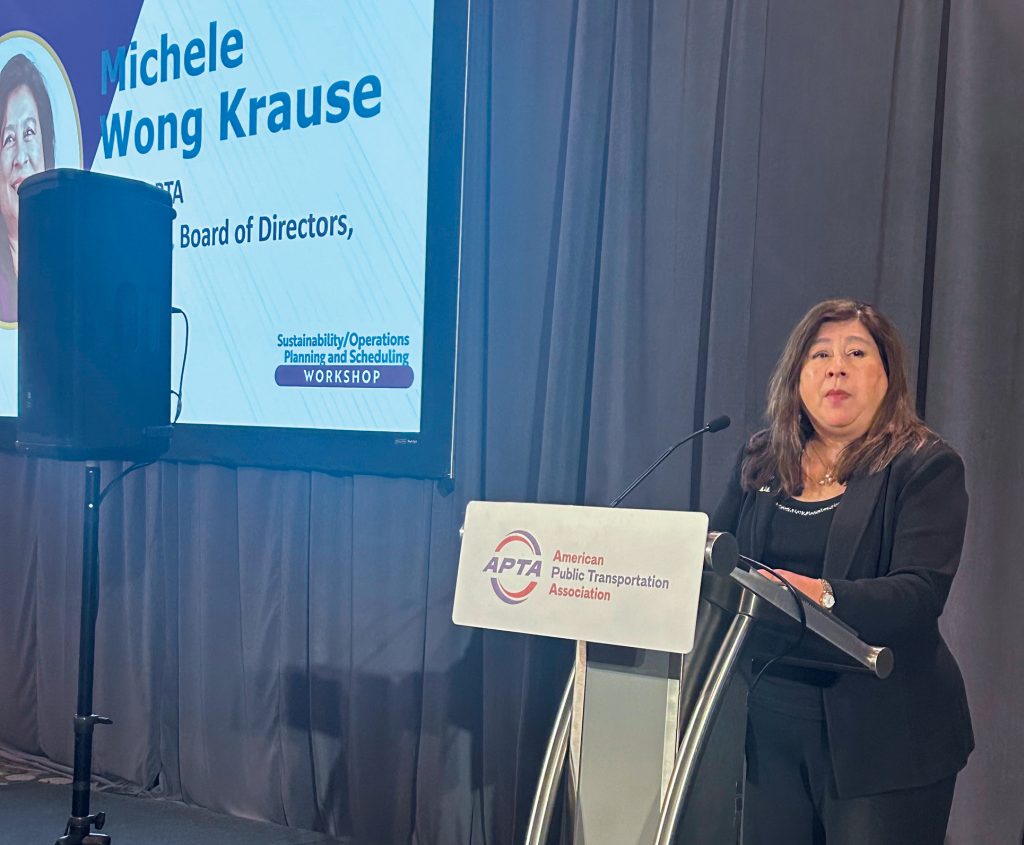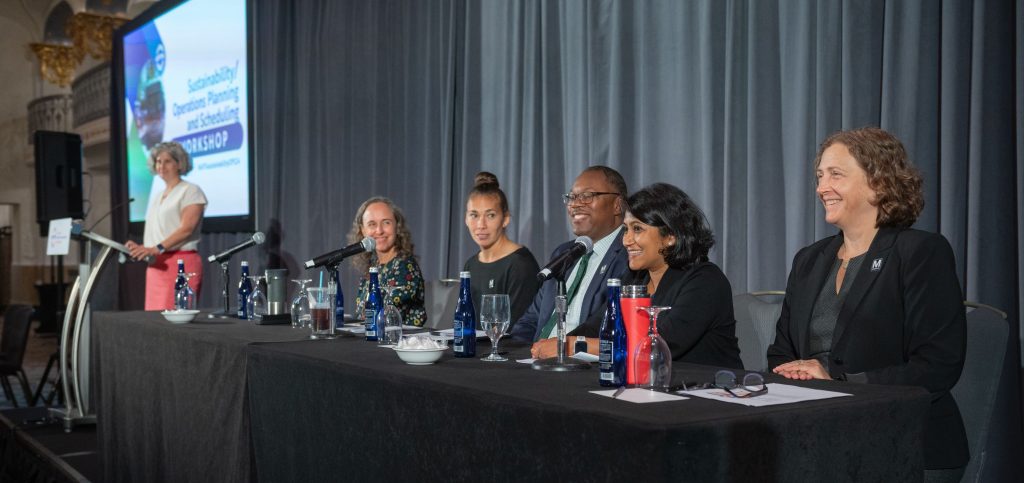APTA Holds Sustainability/Ops Planning & Scheduling Workshop, Workforce Development Summit
8/23/2024
APTA held its 2024 Sustainability/Operations Planning and Scheduling Workshop and inaugural Workforce Development Summit in Washington, DC, this week.

The Sustainability/Operations Planning and Scheduling Workshop, Aug. 18-21, attracted more than 325 attendees. APTA President and CEO Paul P. Skoutelas opened the event Aug. 19 and described the “journey for all of us in this industry,” citing the onset of the pandemic four years ago.
“It literally changed everything around us,” he said. “First of all, our personal lives, perhaps our dealings with individuals, certainly our business lives in transit, whether you’re on the public side as an agency or a business member. And it has caused us and given us the reason to look at things differently, to take into account the changes that have occurred, travel behaviors, and travel patterns.”
He told attendees that whether an engineer, a planner, a service scheduler, service planner, or on the consulting side, we are always thinking how to better serve clients. This means how to reorganize service, how to rethink where to deploy assets, and the capital projects side.

Randy Clarke, general manager and CEO, Washington Metropolitan Area Transit Authority (WMATA), served as workshop host and spoke about how WMATA is leading systems on bus ridership recovery since the pandemic. On the rail side, outside of New York City, it is the 2nd highest of all the top 40 metro systems in the world. He attributed these high numbers to the quality of service his agency provides. “I don’t care how many cool things that we do if we can’t run good service. It doesn’t matter. And of course, to run good service, you need good people.”
Clarke says WMATA works hard to empower and reward its staff, but it also holds them accountable for the delivery because there are lives in their hands. He added that crime on the system is down; fare evasion is down significantly.
Larry Murphy, P.E., chair, APTA Sustainability Committee, and vice president, Jacobs, welcomed attendees and thanked WMATA for the technical tours it hosted over the weekend.
Leslie Bienenfeld, chair, APTA Transit Operations Planning and Scheduling Subcommittee, and manager of special operations, San Francisco Municipal Transportation Agency, noted that this workshop “marks our 35th year of meeting together to explore topics shaping the future of our industry.”

APTA Chair Michele Wong Krause closed the workshop on Aug. 21. She noted that people expect public transportation to deliver a wider array of benefits, and this is especially true with respect to environmental, social, and economic progress.
Key takeaways from the workshop included:
National Ridership Observations: 1) Some of the top markets for transit are also top markets for work-from-home; 2) An increasing share of transit trips are coming from zero-car households; 3) Bus on-time-performance (OTP) is down from 85 to 75 percent; 4) The rate of transfers is down disproportionately, a possible impact of missed connections resulting from the drop in OTP. 5) Anecdotal reports of student populations as key factors in ridership growth.
Transit is Increasingly Environmentally Friendly: Commitments to sustainable practices have further heightened the environmental advantages of public transportation. Building ridership and developing energy-efficient communities around transit are key strategies for furthering environmental goals.
Enhancements at WMATA: Through emphasis on service improvement, WMATA is building a strong case for dedicated funding in the region (DMV Moves).
Renewed Emphasis on Climate Resilience: Given the ongoing trends toward extreme weather, both APTA and FTA have developed complementary resilience guidelines. Assessing and planning for risk is key. Transit systems moving to electric power need to have backup power available whenever there are lapses in the electrical grid.

Following this session, a General Session, Transforming Transit Operations for a Green Future, featured leadership from WMATA. Panelists discussed key initiatives in transit operations planning and sustainability strategy, providing insights for the future of transit in the Washington Metropolitan area. From left: moderator Allison Davis, senior vice president, planning and sustainability; Jordan Holt; senior director; performance and global benchmarking; Melissa Kim, program manager; strategic planning; William Jones, program manager, planning; Raka Choudry, director, bus priority; and Rachel Healy, director, sustainability.